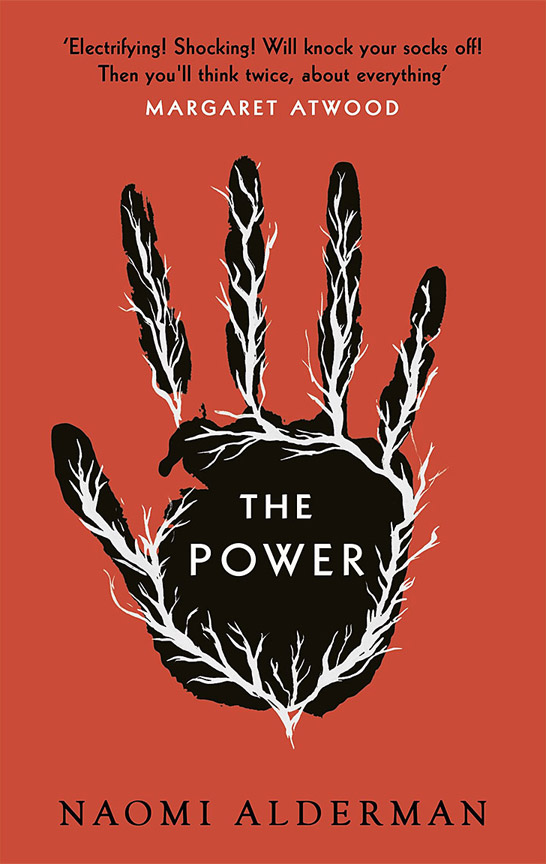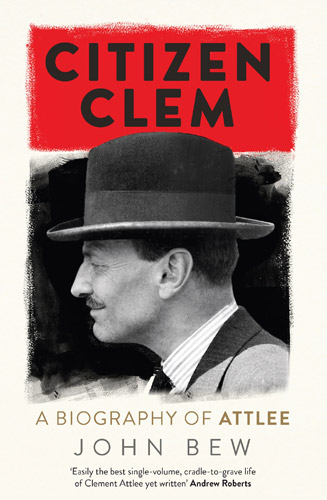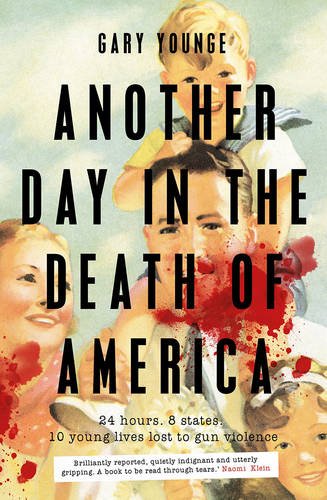Posted on April 9, 2018 by The Orwell Prize -

“An exposition of how the political elites have failed their societies. This investigation into the new global politics reveals how the Somewhere backlash is a democratic response to the dominance of Anywhere interests, in everything from mass higher education to mass immigration.”
(From Hurst Publishers)
Posted on April 9, 2018 by The Orwell Prize -

‘The nature and future of Islam is one of the biggest questions of our age. There are many who doubt whether the words ‘Islam’ and ‘Enlightenment’ should even be in the same sentence, let alone next to each other. Christopher de Ballaigue demonstrates a solid enlightenment tradition which remains vibrant today, and his book is compelling and urgent.” – Andrew Adonis
An absorbing account of the political and social reformations that transformed the lands of Islam in the nineteenth and early twentieth centuries.
Posted on April 9, 2018 by The Orwell Prize -

“The depth to which Wills has researched and animated the lives of Britain’s immigrant communities following the Second World War is astonishing, taking us far beyond the headlines and into the ports, dance-halls and workplaces through which they passed.” – Alex Clark
Clair Wills’ book brings to life the incredible diversity and strangeness of the migrant experience. She introduces us to lovers, scroungers, dancers, homeowners, teachers, drinkers, carers and many more to show the opportunities and excitement as much as the humiliation and poverty that could be part of the new arrivals’ experience.
Posted on April 9, 2018 by The Orwell Prize -

How can we explain the origins of the great wave of paranoid hatreds that seem inescapable in our close-knit world – from American ‘shooters’ and ISIS to Trump? Pankaj Mishra answers our bewilderment by casting his gaze back to the eighteenth century, before leading us to the present.
Posted on April 9, 2018 by The Orwell Prize -

“Witty, wise and constantly surprising, the second novel in Ali Smith’s seasonal state-of-the-nation quartet resists the temptations of agitprop and invective to paint a delicate, historically nuanced portrait of Britain in the age of Brexit. A much-needed reminder that resolution, in life as in art, can only really come when each side learns to see something of itself in the other.” – Lorien Kite
In the second novel in her Seasonal cycle, Smith’s shape-shifting quartet of novels casts a merry eye over a bleak post-truth era with a story rooted in history, memory and warmth, its taproot deep in the evergreens: art, love, laughter.
Posted on April 9, 2018 by The Orwell Prize -

“Mark Mazower’s memoir of his father is filled with history’s great events: the massacre of Jews in Lithuania and the Siege of Stalingrad among them. But Mazower brings to life not only a son’s gradual piecing together of his family’s life, but also a deep and rewarding sense of their inner lives and thoughts.” – Alex Clark
In the centenary of the Russian Revolution, What You Did Not Tell recounts a brand of socialism erased from memory – humanistic, impassioned, and broad-ranging in its sympathies. But it also explores the unexpected happiness that may await history’s losers, the power of friendship, and the love of place.
Posted on April 9, 2018 by The Orwell Prize -

A book on racial inequalities, exploring issues from eradicated black history to the political purpose of white dominance, whitewashed feminism to the inextricable link between class and race.
Posted on April 9, 2018 by The Orwell Prize -

“I’m absolutely delighted that Darren McGarvey’s book Poverty Safari has won the Orwell Prize. His unflinching account of his life and the effects of deprivation and poverty is self-aware, brutally honest and more urgent than ever. If Orwell were alive, this is the book he would choose.” – Kit de Waal
“George Orwell would have loved this book. It echoes Down and Out in London and Paris and The Road to Wigan Pier. It is heart-rending in its life story and its account of family breakdown and poverty. But by the end there is not a scintilla of self-pity and a huge amount of optimism. It made me see the country and its social condition in a new light.” – Andrew Adonis
“Can a leftwing structural critique be married to an ethics of personal responsibility? This is the big question at the heart of Darren McGarvey’s vivid, passionate and relentlessly self-questioning memoir, which all the judges agreed was a book for our times” – Lorien Kite
“What distinguishes Poverty Safari from a ‘straight’ description of a working-class life is his searing examination of the narratives that surround poverty – and the way in which no individual, least of all him, can neatly be fitted into them.” – Alex Clark
Posted on April 9, 2018 by The Orwell Prize -

Bread for All explores and challenges our assumptions about what the welfare state was originally for, and the kinds of people who were involved in creating it. In doing so, it asks what the idea continues to mean for us today
Posted on April 9, 2018 by The Orwell Prize -

“Testosterone Rex is one of those rare books that manages to effortlessly mix science, social commentary and a call to arms. It is witty, robust and angry but provides a new take – and new evidence – that helps us answer the age old question of where women stand in the world.” – Kit de Waal
A book explaining why past and present sex roles are only serving suggestions for the future. It reveals a much more dynamic situation through an entertaining and well-documented exploration of the latest research that draws on evolutionary science, psychology, neuroscience, endocrinology, and philosophy.
Posted on April 9, 2018 by The Orwell Prize -

Combining the techniques of eyewitness reportage with the medium of comic-book storytelling, Evans has produced a compelling view into the life of asylum seekers living in Calais’s ‘Jungle’
Posted on April 9, 2018 by The Orwell Prize -

This collection of Laurie Penny’s writing covers everything from the shock of Donald Trump’s election and the victories of the far right, to online harassment and the transgender rights movement. These darkly humorous articles provoke challenging conversations about the definitive social issues of today.
Posted on March 15, 2017 by The Orwell Prize -

What if the power to hurt were in women’s hands? Suddenly – tomorrow or the day after – teenage girls find that with a flick of their fingers, they can inflict agonizing pain and even death. With this single twist, the four lives at the heart of Naomi Alderman’s extraordinary, visceral novel are utterly transformed.
Taken from Penguin
Posted on March 15, 2017 by The Orwell Prize -

The story of Attlee is also much more dramatic than he himself ever made out – and not without an element of heroism. Here was a man born in the governing class who devoted his life to the service of the poor; who was carried off the battlefield three times in the First World War; who stood shoulder to shoulder with Churchill at Britain’s darkest moment, and then triumphed over him at the general election of 1945. His government of 1945-51 included Ernest Bevin, Herbert Morrison and Nye Bevan and was the most radical in history, giving us the NHS, National Insurance, NATO and the atomic bomb. In many ways we still live in a world of Attlee’s creation. This book will pierce the reticence of Attlee and explore the intellectual foundations and core beliefs of one of the most important figures in twentieth-century British history, arguing that he remains underappreciated, rather than simply underestimated. It will reveal a public servant and patriotic socialist, who never lost sight of the national interest and whose view of humanity and belief in solidarity was grafted onto the Union Jack.
Taken from Quercus
Posted on March 15, 2017 by The Orwell Prize -

On Easter Sunday, 23 April 1916, the seven members of the Irish Republican Brotherhood’s military council met to proclaim an Irish Republic with themselves as the provisional government. After a week of fighting with the British army on the streets of Dublin, the Seven were arrested, court-martialled and executed.
Cutting through the layers of veneration that have seen them regarded unquestioningly as heroes and martyrs by many, Ruth Dudley Edwards provides shrewd yet sensitive portraits of Ireland’s founding fathers. She explores how an incongruous group, which included a communist, visionary Catholic poets and a tobacconist, joined together to initiate an armed rebellion that changed the course of Irish history. Brilliant, thought-provoking and captivatingly told, The Seven challenges us to see past the myths and consider the true character and legacy of the Easter Rising.
Taken from Oneworld Publications
Posted on March 15, 2017 by The Orwell Prize -

Saturday, November 23rd, 2013. It was just another day in America; an unremarkable Saturday on which ten children and teens were killed by gunfire. The youngest was nine; the oldest was nineteen. White, Black and Latino, they fell in suburbs, hamlets and ghettos. None made the national news. There was no outrage about their passing. It was just another day in the death of America, where on a daily average – seven children and teens are killed by guns.
Younge picked this day at random, searched for their families and tells their stories. The nine-year-old opened the door and was shot in the head by his mother’s ex-boyfriend. The eleven-year-old was killed by his friend at a sleep over in rural Michigan. The eighteen-year-old gang member, on Chicago’s South Side, was shot in a stairwell just days after being released from prison. Through ten moving chapters – one for each child – Younge explores the way these children lived and lost their short lives. He finds out who they were, who they wanted to be, the environments they inhabited, and what this might tell us about society at large.
What emerges is a searing portrait of childhood and youth in contemporary America.
Taken from Faber
Posted on March 15, 2017 by The Orwell Prize -

The Return is at once a universal and an intensely personal tale. It is an exquisite meditation on how history and politics can bear down on an individual life. And yet Hisham Matar’s memoir isn’t just about the burden of the past, but the consolation of love, literature and art. It is the story of what it is to be human.
Hisham Matar was nineteen when his father was kidnapped and taken to prison in Libya. He would never see him again. Twenty-two years later, the fall of Gaddafi meant he was finally able to return to his homeland. In this moving memoir, the author takes us on an illuminating journey, both physical and psychological; a journey to find his father and rediscover his country.
Taken from Penguin
Posted on March 15, 2017 by The Orwell Prize -

In March 1946, scientists began to track thousands of children born in one cold week. No one imagined that this would become the longest-running study of human development in the world, growing to encompass five generations of children. Today, they are some of the best-studied people on the planet, and the simple act of observing human life has changed the way we are born, schooled, parent and die. This is the tale of these studies and the remarkable discoveries that have come from them. Touching almost every person in Britain today, they are one of our best-kept secrets.
Taken from Penguin

















